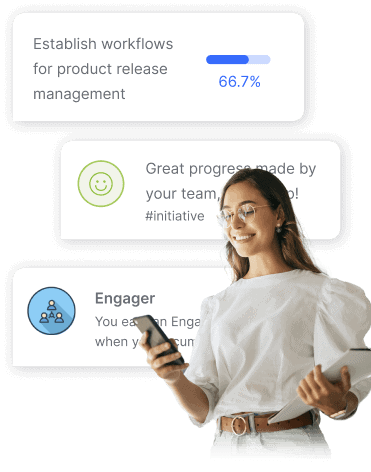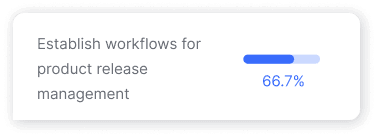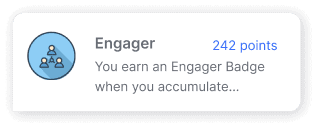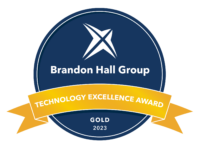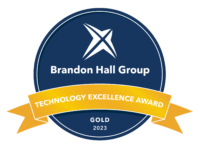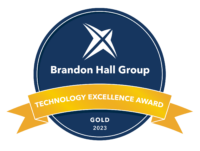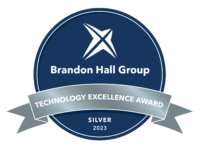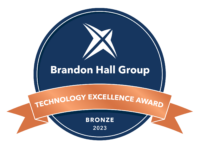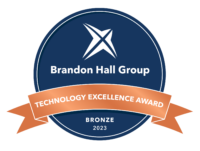The global business landscape is undergoing a transformative shift, driven by technological advancements, remote work arrangements, and changing market dynamics. As a result, the traditional methods of employee learning and development are facing unprecedented challenges and opportunities. As businesses strive to stay competitive and agile, the need to continuously upskill and reskill employees has become paramount. In this dynamic environment, Learning Management Systems (LMS) play a pivotal role in empowering organizations to adapt to these changes effectively.
By providing a centralized platform for delivering and managing training programs, LMS enables businesses to ensure that their workforce remains equipped with the knowledge and skills necessary to thrive in a fast-paced, ever-changing world. From onboarding new hires to fostering leadership development and addressing emerging skill gaps, LMS facilitates a culture of continuous learning that is essential for driving innovation, productivity, and success in today’s business landscape.
In this comprehensive guide, we will explore the critical role of LMS in meeting the learning and development needs of employees amidst evolving business scenarios, equipping you with the insights and strategies needed to harness the full potential of these transformative tools.
What is an LMS?
An LMS is a software application or platform designed to facilitate the management, delivery, and tracking of educational or training content. Essentially, it serves as a centralized hub where administrators can create, organize, distribute, and track various types of learning materials, such as courses, modules, quizzes, assessments, and multimedia content.
At its core, an LMS provides users with a digital environment where learning can take place remotely, eliminating geographical constraints and enabling flexible access to educational resources. It offers features that allow instructors or trainers to design and deliver engaging learning experiences, as well as tools for learners to interact with content, submit assignments, participate in discussions, and track their progress.
What is an LMS used for?
An LMD serves as a central platform for managing and delivering training and development initiatives to employees. Here’s how an LMS is used within an organizational context:
- Employee Onboarding: When new employees join an organization, they need to undergo onboarding to familiarize themselves with company policies, procedures, and culture. An LMS can streamline this process by providing access to onboarding modules, training materials, and interactive resources. New hires can complete onboarding activities at their own pace, ensuring a smooth transition into their roles.
- Job-specific Training: Different roles within an organization require specific skills and knowledge. An LMS allows organizations to create and deliver job-specific training programs tailored to the needs of various departments and functions. Whether it’s sales training for customer-facing teams, IT security training for technology professionals, or leadership development for managers, an LMS ensures that employees receive the training they need to perform their jobs effectively.
- Compliance Training: Many industries are subject to regulatory requirements and compliance standards that employees must adhere to. An LMS facilitates the delivery of compliance training programs, ensuring that employees understand relevant regulations, industry standards, and company policies. Organizations can track employee completion of mandatory training courses and generate reports to demonstrate compliance during audits or inspections.
- Skill Development: Continuous learning and skill development are essential for employee growth and career advancement. An LMS provides access to a wide range of learning resources, including online courses, webinars, articles, and videos, allowing employees to develop new skills and stay updated on industry trends. Employees can create personalized learning paths based on their career goals and interests, fostering a culture of lifelong learning within the organization.
- Performance Support: In addition to formal training programs, an LMS can serve as a repository of knowledge and resources to support employees in their day-to-day activities. Whether it’s troubleshooting technical issues, accessing product information, or learning new software applications, employees can use the LMS to find answers quickly and efficiently, enhancing their productivity and performance on the job.
- Assessment and Feedback: An LMS enables organizations to assess employee learning outcomes and gather feedback on training programs. Through quizzes, assessments, and surveys, organizations can evaluate employee knowledge retention, skill proficiency, and training effectiveness. Feedback mechanisms built into the LMS allow employees to provide input on the quality of training materials and suggest areas for improvement, ensuring that training initiatives are continuously optimized to meet the needs of the workforce.
Types of LMS
There are various types of Learning Management Systems available in the market, each offering distinct features, deployment models, and customization options to cater to the diverse needs of users. Here are the primary types of LMS:
Cloud-based LMS:
- Cloud-based LMS, also known as Software as a Service (SaaS) LMS, is hosted on external servers and accessed over the internet through web browsers.
- Users do not need to install or maintain software on their local servers, as all data and applications are hosted and managed by the LMS provider.
- Cloud-based LMS offers scalability, flexibility, and ease of access, making it ideal for organizations of all sizes, particularly those with limited IT resources.
Self-hosted LMS:
- Self-hosted LMS, also referred to as on-premises or installed LMS, requires organizations to install and manage the software on their own servers or infrastructure.
- Users have full control over the LMS environment, including customization, security configurations, and integration with other systems.
- While self-hosted LMS provides greater control and privacy, it requires significant IT resources and expertise for installation, maintenance, and updates.
Open-source LMS:
- Open-source LMS platforms are built on publicly accessible source code, allowing users to modify, customize, and extend the software according to their specific requirements.
- Users have the freedom to access, redistribute, and modify the source code without licensing restrictions, making open-source LMS solutions cost-effective and flexible.
- Popular open-source LMS platforms include Moodle, Open edX, Sakai, and ILIAS.
Proprietary LMS:
- Proprietary LMS solutions are developed and owned by specific vendors or companies, and their source code is typically not accessible to end-users.
- These LMS platforms are commercially licensed and may require payment of subscription fees or licensing costs for access to the software and ongoing support.
- Proprietary LMS often come with dedicated customer support, regular updates, and additional features tailored to specific industries or use cases.
Industry-specific LMS:
- Industry-specific LMS solutions are designed to meet the unique requirements and compliance standards of particular sectors, such as healthcare, finance, government, or manufacturing.
- These LMS platforms may include specialized features, content libraries, and regulatory compliance tools tailored to the specific needs of the industry they serve.
- Industry-specific LMS solutions aim to address sector-specific challenges and deliver targeted training and development solutions for employees within those industries.
Features of a Learning Management System
An LMS typically offers a wide range of features designed to support various aspects of education and training delivery. These features vary from platform to platform, but generally include:
- User Management: LMS allows administrators to create, manage, and organize user accounts. This includes adding new users, assigning roles and permissions, and organizing users into groups or categories based on criteria such as department or course enrollment.
- Course Creation and Management: LMS provides tools for instructors or content creators to design, develop, and deliver courses. This includes creating course materials, organizing content into modules or lessons, setting prerequisites, and managing course enrollment.
- Content Management: LMS enables users to upload, organize, and manage various types of content, including documents, presentations, videos, audio files, and interactive multimedia. Content can be structured into modules or folders for easy navigation.
- Assessment and Evaluation: LMS offers tools for creating and administering assessments such as quizzes, tests, assignments, and surveys. It also provides mechanisms for grading assessments, providing feedback to learners, and tracking learner progress and performance.
- Communication and Collaboration: LMS facilitates communication and collaboration among users through features such as discussion forums, messaging systems, announcement boards, and real-time chat. These tools help foster interaction and engagement among learners and instructors.
- Progress Tracking and Reporting: LMS allows administrators and instructors to track learner progress and performance. This includes monitoring course completion rates, assessment scores, participation levels, and other relevant metrics. LMS also generates reports and analytics to provide insights into learner engagement and effectiveness of training programs.
- Customization and Branding: LMS often offers customization options to tailor the platform to the organization’s branding and style guidelines. This may include customizing colors, logos, themes, and layouts to create a cohesive and branded learning environment.
- Mobile Compatibility: Many LMS platforms are compatible with mobile devices, allowing users to access courses and content on smartphones and tablets. This enables learners to engage in learning activities anytime, anywhere, and on any device, enhancing accessibility and flexibility.
- Integration and Compatibility: LMS integrates with other software systems and tools commonly used in educational and corporate environments. This may include integration with HR systems, video conferencing platforms, content authoring tools, learning analytics solutions, and more.
- Security and Data Privacy: LMS prioritizes security and data privacy to protect sensitive information and ensure compliance with regulations such as GDPR and FERPA. This includes features such as user authentication, data encryption, role-based access control, and regular security updates and patches.
Benefits of Using an LMS
Leveraging an LMS offers numerous advantages that directly impact efficiency, productivity, and employee development strategies:
- Centralized Learning Hub: With an LMS, all training materials, resources, and courses are stored in a centralized location. This simplifies access for employees and trainers, ensuring that everyone can easily find and utilize the necessary learning content.
- Accessibility and Flexibility: Employees can access training materials and courses at their convenience, whether they’re in the office, working remotely, or on the go. This flexibility eliminates barriers to learning and allows employees to fit training into their busy schedules, leading to increased engagement and participation.
- Cost-Effectiveness: Implementing an LMS can significantly reduce training costs associated with traditional methods, such as instructor-led sessions, printed materials, and travel expenses. Moreover, as the organization grows, the LMS can scale accordingly without incurring additional overhead costs.
- Enhanced Tracking and Reporting: Administrators can track employee progress, completion rates, and performance metrics in real-time through the LMS dashboard. This data-driven approach enables organizations to identify training gaps, assess the effectiveness of training programs, and make informed decisions for continuous improvement.
- Personalized Learning Experiences: An LMS can deliver personalized learning paths and recommendations based on employee roles, skills, and learning preferences. This tailored approach ensures that employees receive relevant content and support, leading to better learning outcomes and skill development.
- Streamlined Administration: Administrative tasks such as course enrollment, user management, and reporting are automated within the LMS, reducing manual workload for training coordinators and HR personnel. This efficiency frees up time for administrators to focus on strategic initiatives and employee development planning.
- Scalability and Consistency: Whether the organization is expanding globally or adding new employees, the LMS can scale to accommodate the growing workforce. Additionally, by delivering consistent training content and experiences across different departments and locations, organizations can maintain quality standards and ensure alignment with organizational goals.
- Collaborative Learning Environment: The LMS fosters collaboration and knowledge sharing among employees through features like discussion forums, group projects, and social learning communities. This collaborative environment encourages teamwork, idea exchange, and a culture of continuous learning within the organization.
Learning Management System (LMS) vs. Learning Experience Platform (LXP)
Understanding the differences between LMS and LXP involves recognizing their distinct focuses and functionalities within the realm of learning and development.
Learning Management System (LMS):
- Core Functionality: LMS primarily focuses on the management and administration of learning content and activities.
- Structured Learning: LMS is designed to deliver structured learning experiences typically associated with formal education or training programs. It follows a traditional approach to learning, often featuring pre-defined courses, modules, and assessments.
- Content-Centric: LMS tends to prioritize content delivery and tracking, with a strong emphasis on managing courses, tracking learner progress, and generating reports.
- Compliance and Certification: LMS platforms are commonly used for compliance training and certification programs, where tracking and documenting learner progress and completion are critical.
Learning Experience Platform (LXP):
- Learner-Centric: LXP places a stronger emphasis on the learner’s experience and preferences, focusing on delivering personalized and engaging learning experiences.
- Aggregated Content: LXP typically aggregates content from various sources, including formal courses, informal learning resources, user-generated content, and external content providers.
- Social and Collaborative: LXP often incorporates social learning features, enabling learners to share knowledge, collaborate with peers, and engage in discussions and communities of practice.
- Discovery and Recommendation: LXP platforms use algorithms and machine learning to recommend relevant content to learners based on their interests, preferences, and learning history.
- Informal Learning Support: LXP is well-suited for supporting informal and self-directed learning initiatives, allowing learners to explore topics of interest at their own pace and according to their individual learning styles.
In summary, while both LMS and LXP serve important roles in the learning and development ecosystem, they differ in their primary focus and approach. LMS is geared towards managing and delivering structured learning content, tracking learner progress, and ensuring compliance, while LXP prioritizes the learner’s experience, personalization, social learning, and support for informal learning initiatives. Depending on the organization’s goals and the nature of its learning programs, it may choose to implement either an LMS, an LXP, or a combination of both to meet its specific needs and objectives.
Factors to Consider while Selecting an LMS
Selecting the appropriate LMS is a critical decision for businesses aiming to implement effective online learning and training programs. The process of choosing an LMS involves a methodical assessment of various factors to ensure alignment with the organization’s specific needs, objectives, and operational requirements. Here’s a breakdown of the key aspects involved in selecting an LMS for a business setting:
- Needs Analysis: Begin by conducting a thorough needs analysis to identify the precise requirements and goals of the business. This includes understanding the target audience, the types of training programs needed, desired features and functionalities, and any logistical or technical constraints within the organization.
- Feature Assessment: Evaluate the features and functionalities offered by different LMS platforms to determine which ones best suit the identified needs and requirements of the business. Key features to consider include content management capabilities, course creation tools, assessment functionalities, reporting capabilities, user management features, and compatibility with existing business systems.
- Scalability and Flexibility: Consider the scalability and flexibility of an LMS to ensure it can accommodate the business’s growth and evolving needs. The chosen platform should be scalable to support increasing user numbers and flexible in terms of customization, integration with other business systems, and support for different types of learning content and formats.
- User Experience: The user experience is crucial for the successful adoption of an LMS within a business setting. Choose a platform that offers an intuitive and user-friendly interface for both administrators and learners. Conduct user testing and gather feedback to assess usability and effectiveness.
- Support and Training: Adequate support and training are essential for successful LMS implementation and ongoing usage within a business. Evaluate the level of support and training provided by LMS vendors, including technical support services, user documentation, online tutorials, and training resources tailored to the needs of business administrators, trainers, and employees.
- Cost Analysis: Consider both upfront and long-term costs associated with implementing and maintaining an LMS. Evaluate pricing plans from different vendors and calculate the total cost of ownership (TCO) over the expected lifespan of the LMS. Assess cost-effectiveness in terms of licensing, customization, maintenance, and support services.
- Vendor Reputation and Reliability: Research and evaluate the reputation, reliability, and track record of LMS vendors before making a decision. Review customer testimonials, case studies, and industry reviews to assess vendor stability, update frequency, security measures, and compliance with industry standards and regulations.
By carefully considering these factors and conducting thorough research and evaluation, businesses can choose an LMS that effectively supports their training and development initiatives, enhances employee learning experiences, and contributes to organizational success.
Summing Up
A Learning Management System stands as a cornerstone in modern corporate training, providing a robust platform for organizations to deliver, manage, and track employee learning and development initiatives. Its adaptability, scalability, and intuitive interface make it an invaluable asset in today’s competitive business landscape. Beyond streamlining administrative tasks, a well-implemented LMS fosters a culture of continuous learning, skill development, and employee engagement, driving organizational success. As technology continues to advance, the evolution of LMS platforms will ensure that businesses can effectively upskill their workforce, stay ahead of industry trends, and achieve their strategic objectives.
Subscribe To The Engagedly Newsletter


